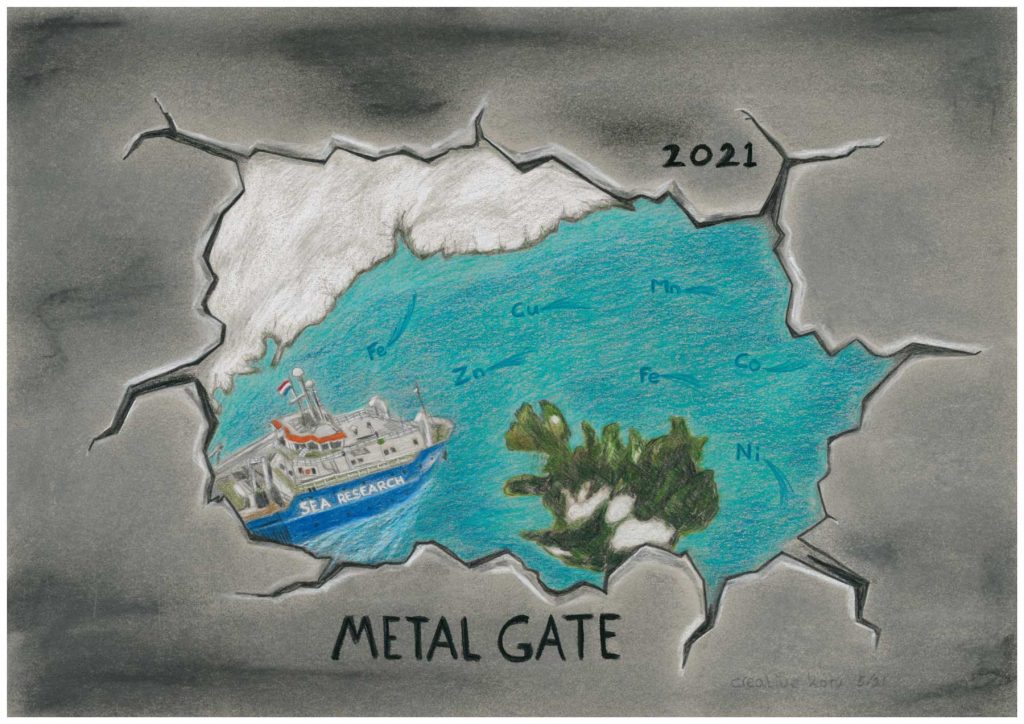Follow the MetalGate expedition in the North Atlantic Ocean!

An interdisciplinary team of 12 Marine Chemistry, Biology, and Geology scientists and technicians from the Netherlands, Canada and UK, together with the 13-headed Pelagia crew, are participating in a GEOTRACES research expedition to the High Latitude North Atlantic (17 July – 17 August 2021). The team, lead by NIOZ PI Dr Rob Middag, will investigate the cycling of trace metals, especially iron, in the Greenland-Iceland-Norwegian-Sea region around Iceland, the main gateway between the Arctic and Atlantic Ocean.
You can follow the cruise blog here: https://www.nioz.nl/en/blog/metalgate-2021-cruise
Iron, together with other trace metals, is an essential micronutrient, required for the growth of all organisms, including phytoplankton that form the base of the marine food web. Given that phytoplankton convert CO2 into biomass that partly settles into the deep ocean, trace metals are key players in global climate. However, some key ocean regions remain understudied and various crucial processes remain poorly understood, making informed-policy decisions on climate strategies and management rather challenging. One of these understudied regions is the High Latitude North Atlantic, where phytoplankton and thus primary productivity is limited by the availability of iron. Since the high latitudes are changing rapidly, scientist are urged to understand how both current and future ocean changes effect global biogeochemical cycles, notably the marine iron cycle.
Consequently, the MetalGate team will collect samples for trace metals, various isotopes, nutrients, phytoplankton, and sedimentological parameters during the expedition to unravel the role metals play in this climate relevant region. The scientists will also conduct controlled bio-assays at ecologically relevant conditions to improve current understanding of the linkages between phytoplankton physiology and biogeochemistry in the high latitude North Atlantic. Samples will also be collected for colleagues from the USA, UK, Spain, Switzerland, and Brazil that cannot join the cruise, making this expedition a truly interdisciplinary and international endeavour. Insights from this work will enhance the understanding of local biogeochemical cycles and their connections to global cycles and thus climate. Such data will also result in better predictions of the likely impact, both now and in the future, of imminent Arctic and sub-Artic climate change on ocean health.
Source: NIOZ nieuws
